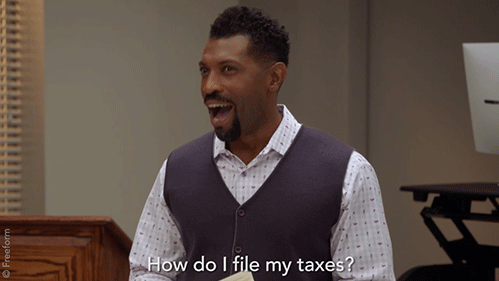Time to scrounge up those old receipts and grab a calculator—it's tax season! But this year, filing will be a bit different as some new rules and programs go into effect.
What’s new: There are no enormous changes this year, but here are a few updates to take note of…
-
Tax brackets have been adjusted for inflation meaning you could save a few bucks by paying a lower rate on more of your income. You'll pay 15% on the first $50,197 you earn, up from $49,020 in 2021.
-
A bump up for the Basic Personal Amount (BPA): The goal is to get the tax-exempt amount to $15,000 by 2023, but it's implemented in increments, so this year's BPA is $14,398 and could help reduce the amount of taxes you owe.
- First-time home buyer’s tax credit doubled: The non-refundable tax credit aimed at helping offset the cost of purchasing a first home is now $10,000.
- The Home Accessibility Tax Credit also doubled: From $10,000 to $20,000 intended for home upgrades needed to accommodate senior or disabled family members.
- And you can still write off home office expenses: If you worked from home 50% of the time over a four-week period, you can claim a flat rate of $500.
Keep in mind: The deadline for filing your tax return (and coughing up cash if you owe) is May 1 this year, since April 30 falls on a Sunday.
- If you’re self-employed, you have a bit more time with a June 15 deadline.
- You can top up your RRSP contributions until March 1.
What’s next: One of the biggest changes for the 2023 tax year is the launch of the First Home Savings Account (FHSA), which allows anyone aged 18 to 71 to contribute up to $8,000 a year (up to a $40,000 max). The FHSA will be a must-have, as it offers both the tax deductions of a RRSP and the tax-free capital gains of a TFSA.
- The FHSA hasn’t launched yet so any contributions will have to be claimed on next year’s taxes, but you should start planning to make contributions this year.
- Another new housing benefit coming soon is the Multigenerational Home Renovation Tax Credit, which is a refundable tax credit of up to $7,500 to help ease the cost of building a "secondary suite" in your home for elderly or disabled family members.
- You’ll also be able to put $500 more into your TFSA bringing the total to $6,500.
- Same with your RRSP—you’ll be able to deposit up to $30,780, $1500 more than this year.
Why it matters: Whether you DIY them or pay someone else, taxes are a pain, but understanding all the credits and breaks you're eligible for can lower the amount you owe (or increase the amount you get back) from the government.
